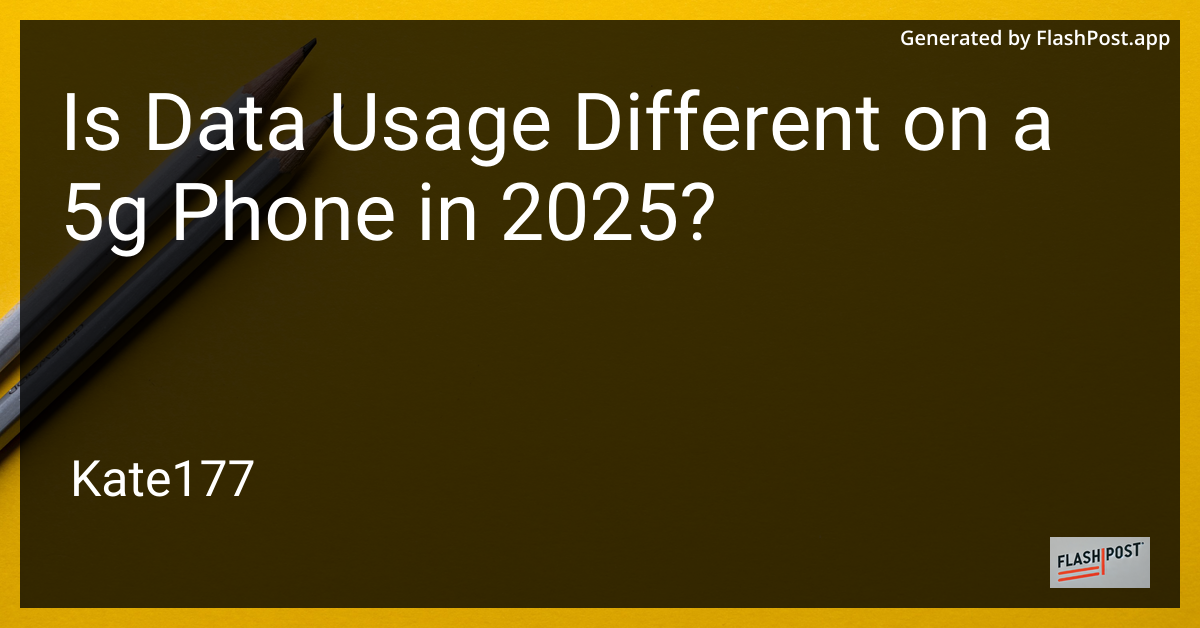
With the rapid advancement of technology, 5G networks have become the standard for mobile communication worldwide by 2025. As users upgrade to 5G-enabled devices, a common question emerges: is data usage different on a 5G phone compared to the previous generations? In this article, we'll explore how 5G technology influences data consumption and what users can expect in terms of data usage.
Understanding 5G Technology
5G, or fifth-generation technology, is the latest iteration of mobile networks, promising faster speeds, lower latency, and more reliable connections compared to 4G LTE. This upgrade allows for smoother streaming, quicker downloads, and enhanced connectivity, which inevitably impacts data usage.
Data Consumption Trends on 5G
Speed and Capacity
One of the main advantages of 5G is its unmatched speed. This increased speed can lead to higher data consumption in several ways:
- Streaming Services: 5G enables seamless streaming of high-definition and 4K videos, which require significantly more data than standard definitions.
- Augmented and Virtual Reality: The capacity of 5G networks supports data-intensive applications such as AR and VR, which consume much higher amounts of data compared to traditional applications.
- Cloud Gaming: High-speed 5G networks make cloud gaming a reality, but this service demands large amounts of data, especially for high-quality graphics and gameplay.
More Frequent Use
The reduced latency on 5G devices encourages users to engage more frequently in data-centric activities:
- Online Gaming: The lower latency gives a competitive edge in gaming, thus attracting gamers to play more often and for longer durations.
- Remote Work and Learning: With an increased number of applications facilitating remote work and learning, usage frequency and data consumption naturally rise.
Technological Impacts on Data Usage
Network Efficiency
While 5G increases accessibility to high-bandwidth applications, it is designed to be more efficient in data handling. This efficiency can potentially lead to optimized data usage, where faster completion of data-heavy tasks can mean less overall consumption.
IoT Integration
5G significantly benefits the Internet of Things (IoT), where countless devices are interconnected. The implication for personal data usage could be significant as more devices connect to individual data plans to communicate, monitor, and automate tasks.
Emerging Applications
As 5G continues to proliferate, new applications and services will emerge, potentially affecting data usage patterns in unforeseen ways. Continuous innovation will ensure that users find newer utilities for 5G, each with its own data implications.
Conclusion
As we move into 2025, data usage patterns on 5G devices are likely to be higher compared to previous technologies due to enhanced speeds, broader application uses, and increased device integration. While 5G networks offer more efficient data handling capabilities, the sheer volume of data-driven activities expected may lead to higher usage overall. Users will need to monitor their data consumption, invest in adequate data plans, and adapt to services tailored to 5G technology.
To learn more about data management and technological advancements, visit our guide on phone number extraction.